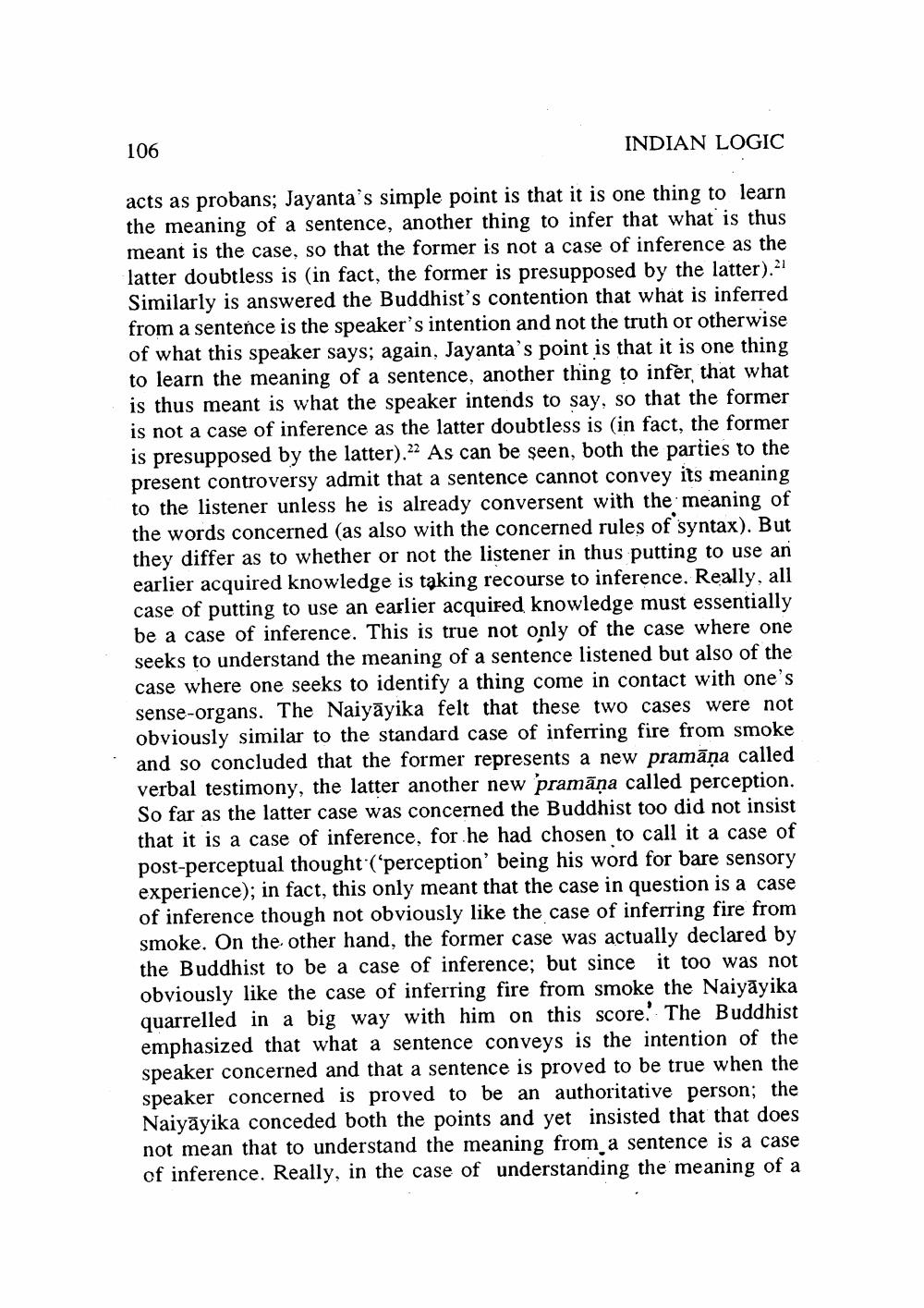________________
106
INDIAN LOGIC
acts as probans; Jayanta's simple point is that it is one thing to learn the meaning of a sentence, another thing to infer that what is thus meant is the case, so that the former is not a case of inference as the latter doubtless is (in fact, the former is presupposed by the latter).21 Similarly is answered the Buddhist's contention that what is inferred from a sentence is the speaker's intention and not the truth or otherwise of what this speaker says; again, Jayanta's point is that it is one thing to learn the meaning of a sentence, another thing to infer, that what is thus meant is what the speaker intends to say, so that the former is not a case of inference as the latter doubtless is (in fact, the former is presupposed by the latter).22 As can be seen, both the parties to the present controversy admit that a sentence cannot convey its meaning to the listener unless he is already conversent with the meaning of the words concerned (as also with the concerned rules of syntax). But they differ as to whether or not the listener in thus putting to use an earlier acquired knowledge is taking recourse to inference. Really, all case of putting to use an earlier acquired knowledge must essentially be a case of inference. This is true not only of the case where one seeks to understand the meaning of a sentence listened but also of the case where one seeks to identify a thing come in contact with one's sense-organs. The Naiyāyika felt that these two cases were not obviously similar to the standard case of inferring fire from smoke and so concluded that the former represents a new pramāņa called verbal testimony, the latter another new pramāna called perception. So far as the latter case was concerned the Buddhist too did not insist that it is a case of inference, for he had chosen to call it a case of post-perceptual thought (“perception' being his word for bare sensory experience); in fact, this only meant that the case in question is a case of inference though not obviously like the case of inferring fire from smoke. On the other hand, the former case was actually declared by the Buddhist to be a case of inference; but since it too was not obviously like the case of inferring fire from smoke the Naiyāyika quarrelled in a big way with him on this score. The Buddhist emphasized that what a sentence conveys is the intention of the speaker concerned and that a sentence is proved to be true when the speaker concerned is proved to be an authoritative person; the Naiyāyika conceded both the points and yet insisted that that does not mean that to understand the meaning from a sentence is a case of inference. Really, in the case of understanding the meaning of a




